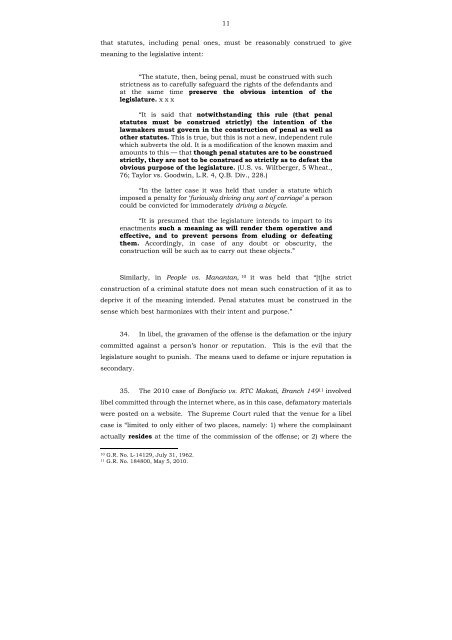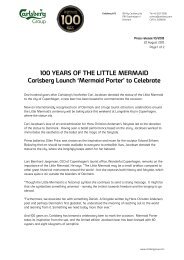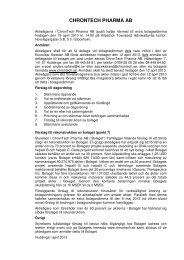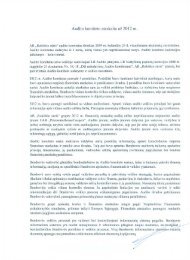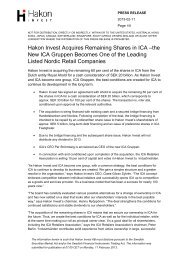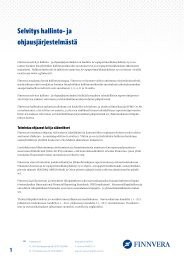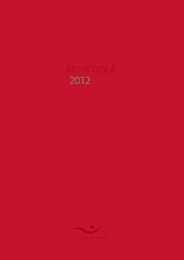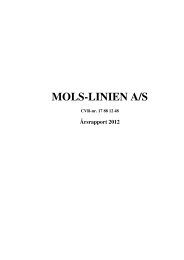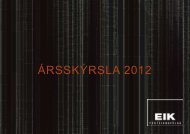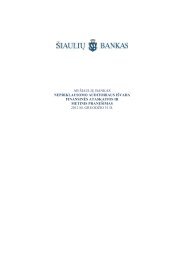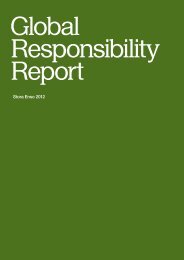COMPLAINT-AFFIDAVIT
COMPLAINT-AFFIDAVIT
COMPLAINT-AFFIDAVIT
- No tags were found...
You also want an ePaper? Increase the reach of your titles
YUMPU automatically turns print PDFs into web optimized ePapers that Google loves.
11that statutes, including penal ones, must be reasonably construed to givemeaning to the legislative intent:“The statute, then, being penal, must be construed with suchstrictness as to carefully safeguard the rights of the defendants andat the same time preserve the obvious intention of thelegislature. x x x“It is said that notwithstanding this rule (that penalstatutes must be construed strictly) the intention of thelawmakers must govern in the construction of penal as well asother statutes. This is true, but this is not a new, independent rulewhich subverts the old. It is a modification of the known maxim andamounts to this — that though penal statutes are to be construedstrictly, they are not to be construed so strictly as to defeat theobvious purpose of the legislature. (U.S. vs. Wiltberger, 5 Wheat.,76; Taylor vs. Goodwin, L.R. 4, Q.B. Div., 228.)“In the latter case it was held that under a statute whichimposed a penalty for ‘furiously driving any sort of carriage’ a personcould be convicted for immoderately driving a bicycle.“It is presumed that the legislature intends to impart to itsenactments such a meaning as will render them operative andeffective, and to prevent persons from eluding or defeatingthem. Accordingly, in case of any doubt or obscurity, theconstruction will be such as to carry out these objects.”Similarly, in People vs. Manantan, 10 it was held that “[t]he strictconstruction of a criminal statute does not mean such construction of it as todeprive it of the meaning intended. Penal statutes must be construed in thesense which best harmonizes with their intent and purpose.”34. In libel, the gravamen of the offense is the defamation or the injurycommitted against a person’s honor or reputation. This is the evil that thelegislature sought to punish. The means used to defame or injure reputation issecondary.35. The 2010 case of Bonifacio vs. RTC Makati, Branch 149 11 involvedlibel committed through the internet where, as in this case, defamatory materialswere posted on a website. The Supreme Court ruled that the venue for a libelcase is “limited to only either of two places, namely: 1) where the complainantactually resides at the time of the commission of the offense; or 2) where the10 G.R. No. L-14129, July 31, 1962.11 G.R. No. 184800, May 5, 2010.


